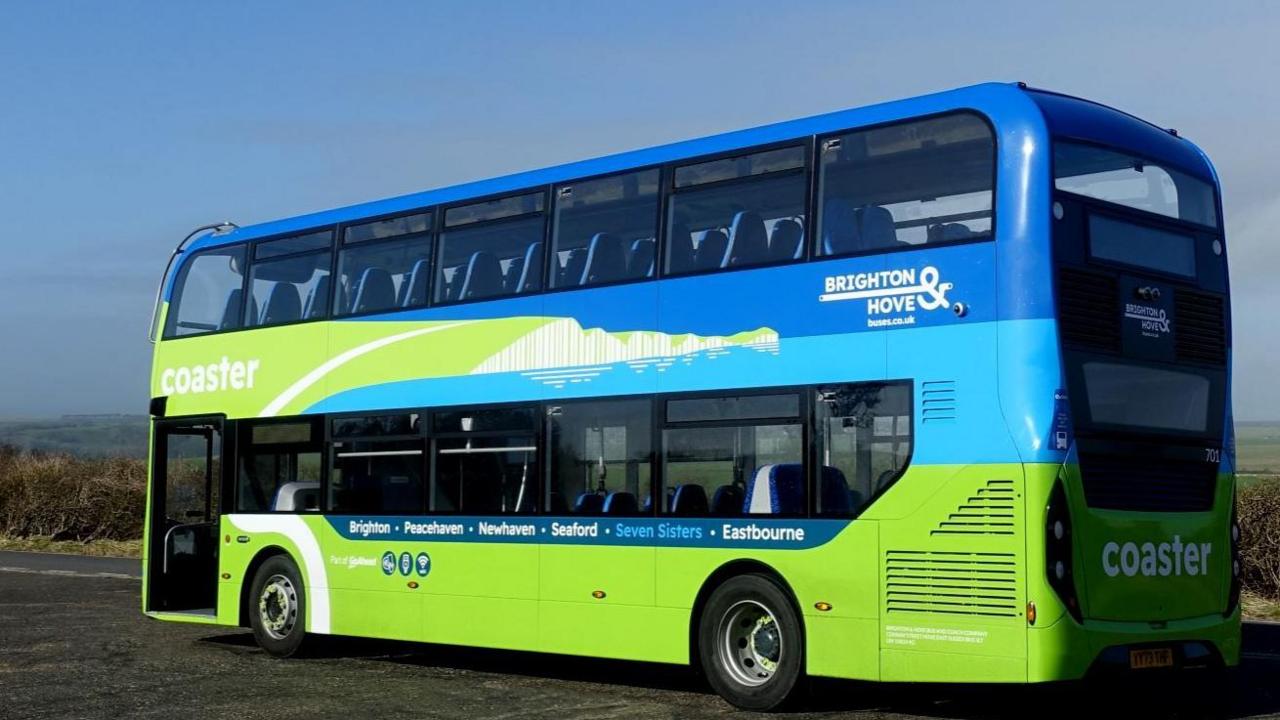People left trapped as local bus services cut
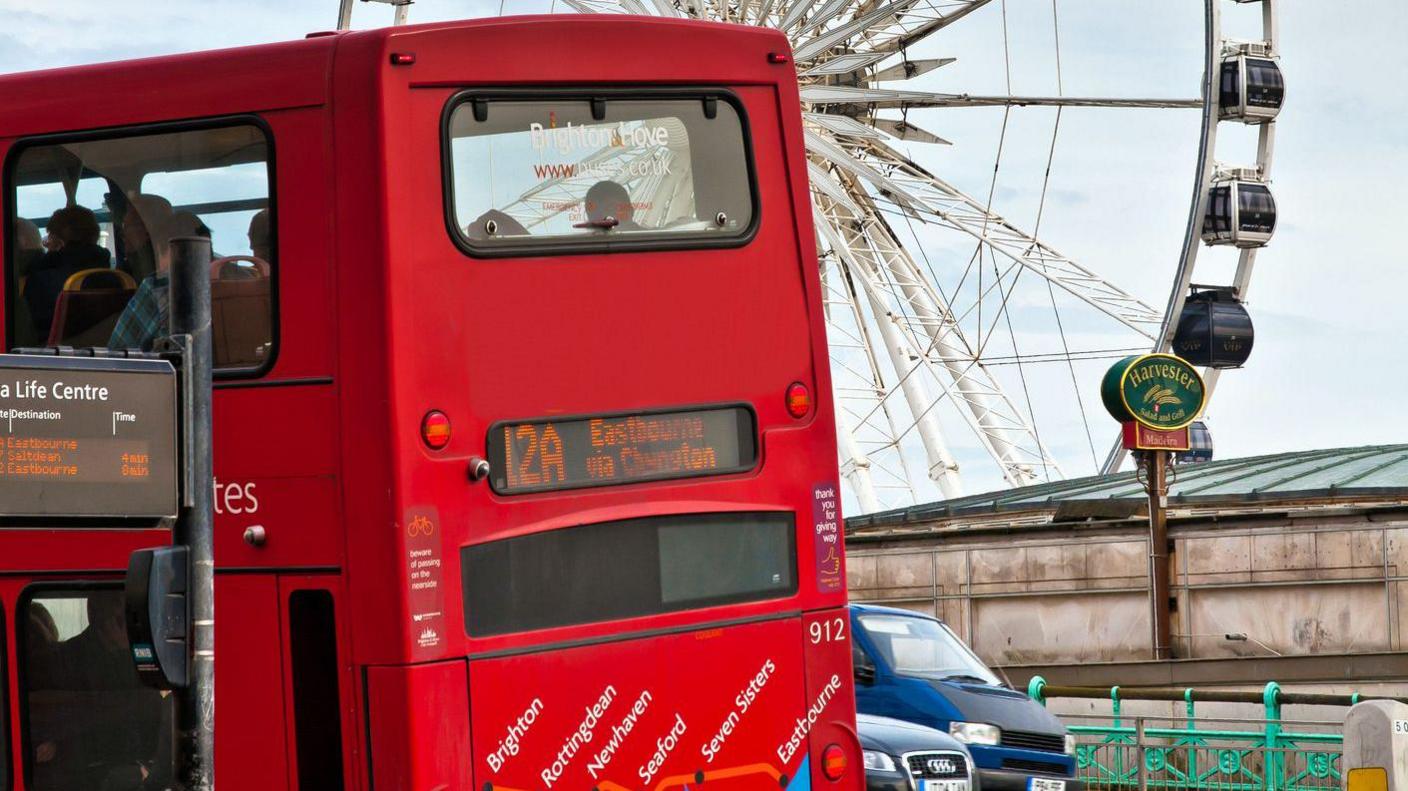
Some bus routes are subsidised by local councils
- Published
The number of council-supported bus routes in Kent has more than halved in the past 10 years, a Freedom of Information request has revealed.
Local authorities provide funding for services that are not considered commercially viable by private companies, but new figures show the number of subsidised routes has dwindled in parts of the South East.
Campaigners say this is leaving elderly and disabled people isolated and trapped in rural areas.
Kent County Council says it is working closely with bus operators and central government and has a detailed plan to secure services.
Since the Covid pandemic, commercial operators have cut back services, blaming reduced passenger numbers and rising costs.
There were 75 routes subsidised by Kent County Council last year, compared to 167 in 2013/14.
Richard Shannon, who lives in Conyer, near Sittingbourne in Kent, had his local bus service cut last year. It is being replaced by one service a week.
'Taken away our freedom'
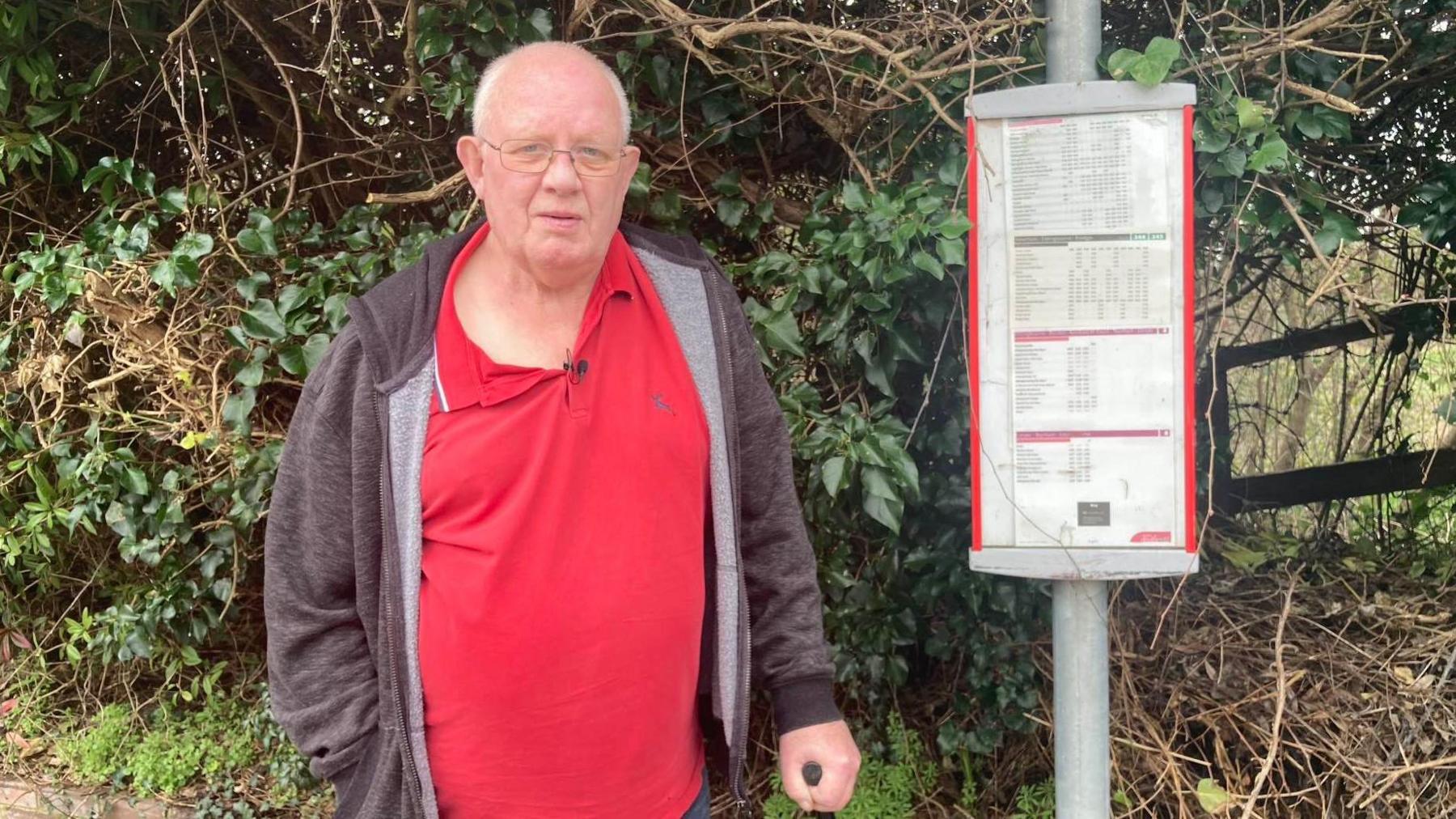
Richard Shannon says he and his wife are "effectively trapped" since bus cuts in his village
“It’s taken away our freedom,” he said.
He and his wife can no longer visit family or go to the market and are "effectively trapped" in Conyer.
A spokesperson for Kent County Council said government funding through the Bus Service Improvement Plan allowed the council to secure services that served the community, particularly school children.
They added: "Bus operators have faced challenging conditions including rising fuel costs and falling passenger numbers."
Other South East councils say government funding has enabled them to maintain or increase support for bus routes, external.
Brighton and Hove City Council said the total mileage of supported buses has increased in the city since 2009.
In East Sussex the number of supported bus routes has increased from 85 ten years ago, to 140 in 2023/24.
Bus cuts in numbers
In Medway, the number of council-funded routes has dropped by more than a third, from 43 in 2013/14 to 27 last year.
A Medway Council spokesperson said some of those routes have been taken over by commercial operators and still operate, but at the commercial risk of the bus company rather than the council.
They said they have used government funding to enhance certain services and that they’ve had to look for value for money when passenger numbers are low.
Meanwhile, there were 47 supported routes in West Sussex last year, compared to 55 a decade earlier.
West Sussex County Council said since October 2021, £19m had been awarded by the Department for Transport to boost bus services and increase bus passenger numbers.
A spokesperson said: “We are working in partnership with the bus companies to do all we can to try to make bus travel as attractive as possible, make it easier for people to get to essential services, shops and businesses, education and leisure facilities."
Follow BBC Kent on Facebook, external, on X, external, and on Instagram, external. Send your story ideas to southeasttoday@bbc.co.uk, external or WhatsApp us on 08081 002250.
Related topics
Related Internet Links
- Published22 March 2024
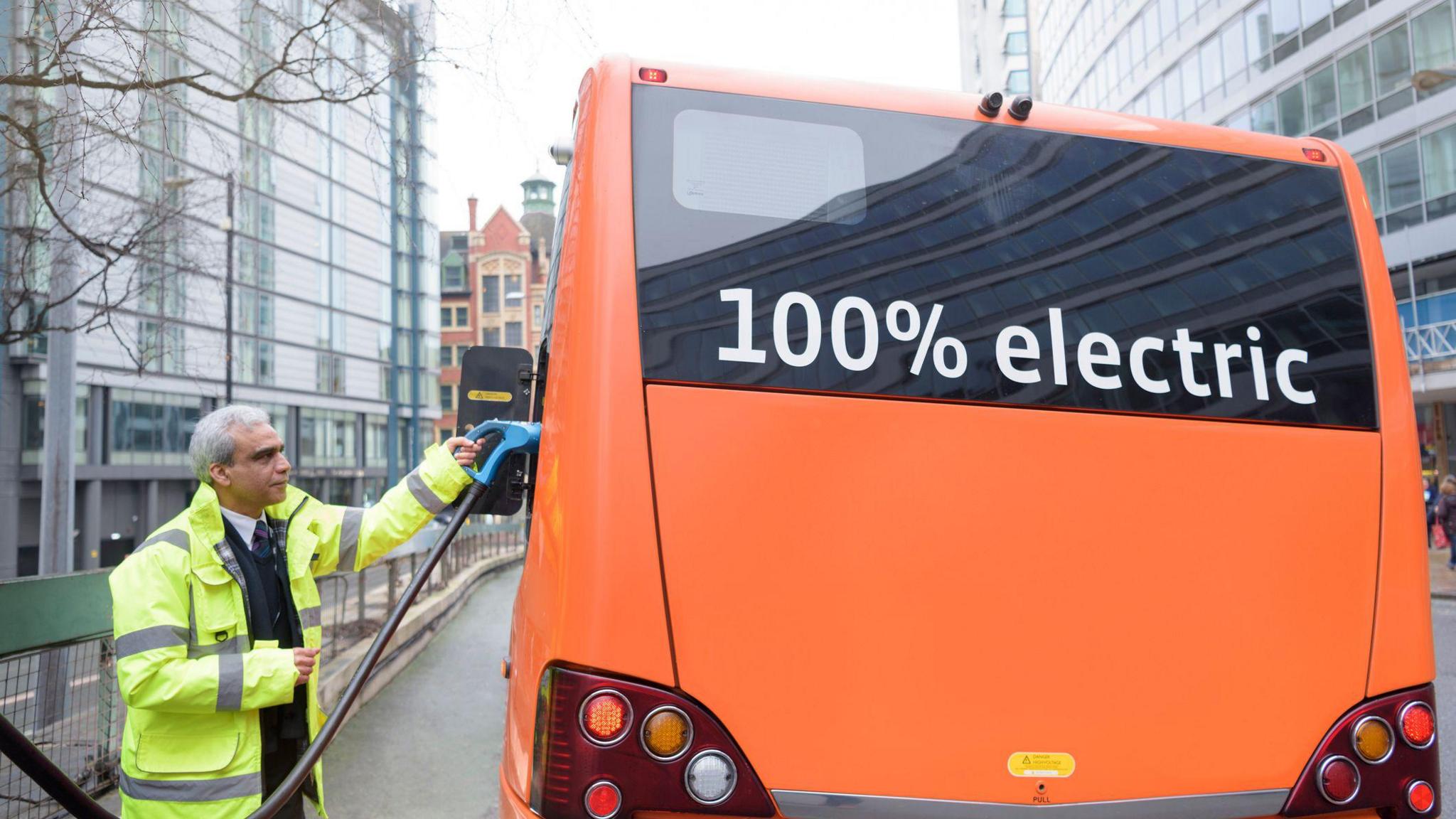
- Published21 June 2023
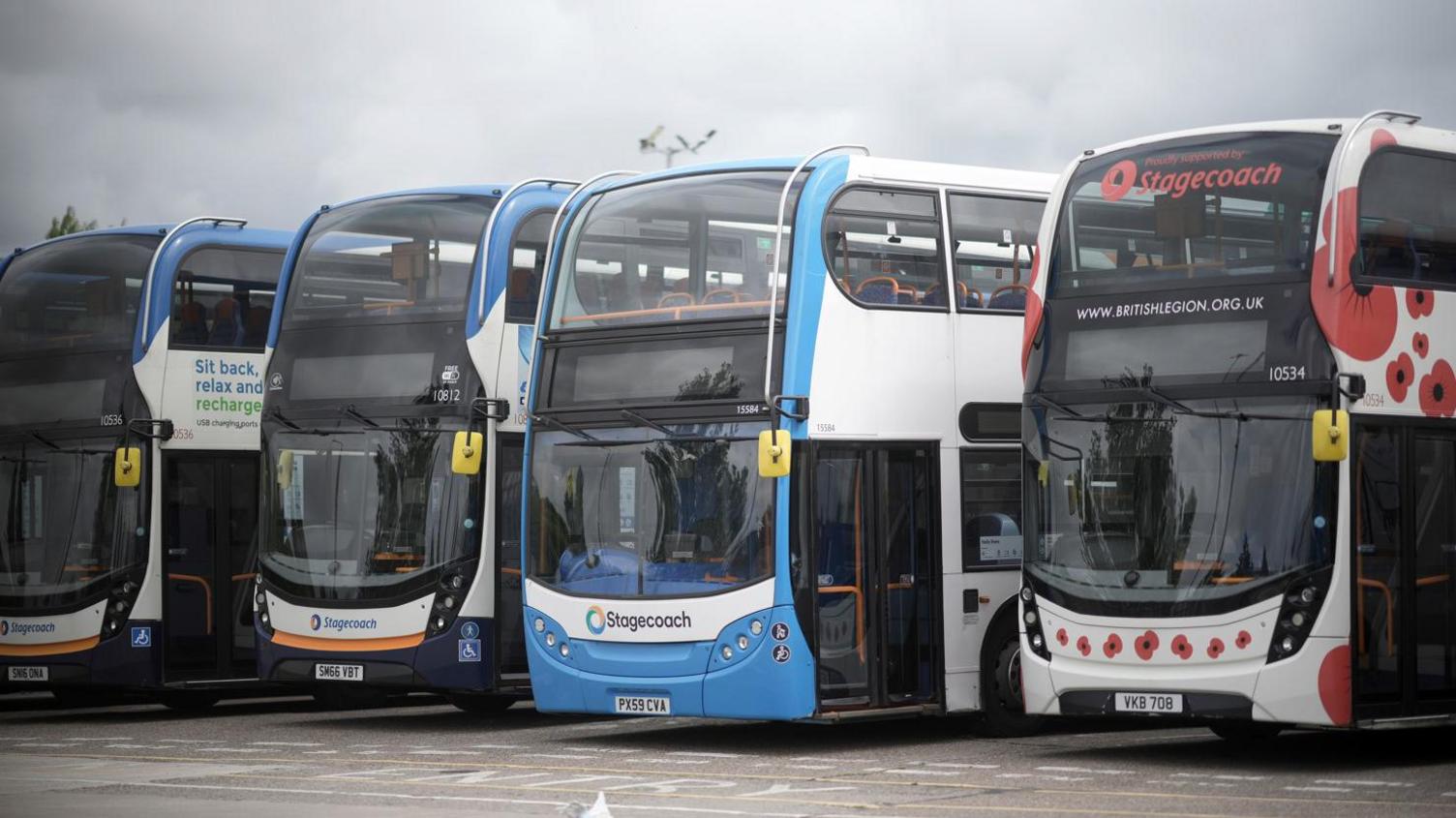
- Published13 March 2024
